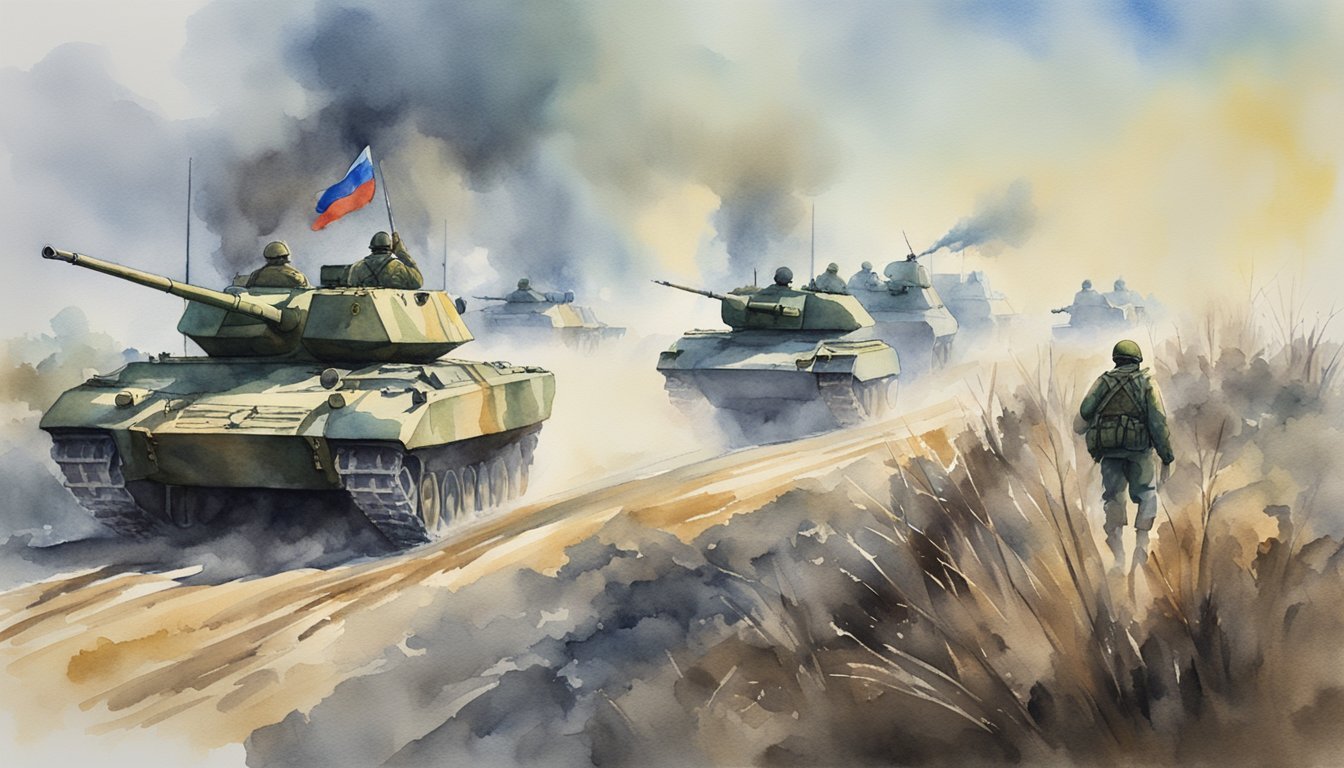Historical Context and Causes of the Invasion
Background of Ukraine-Russia Relations
The relationship between Ukraine and Russia has a complex history, with the roots of the conflict dating back to the times of the Soviet Union. Following the collapse of the USSR in 1991, Ukraine declared its independence, leading to a shift in the geopolitical balance of Eastern Europe.
The Crimean Peninsula, an important strategic region, has been a contentious issue between Ukraine and Russia. In 2014, Russia annexed Crimea, a move that was widely condemned by the international community. This annexation sparked unrest in the eastern regions of Donetsk and Luhansk, regions with significant Russian-speaking populations. The conflict in these regions escalated into the ongoing Donbas war.
Events Leading Up to the Invasion
The Euromaidan protests in late 2013 and early 2014 marked a turning point in Ukraine-Russia relations. These protests were driven by the Ukrainian people’s desire for closer ties with the European Union and an end to political corruption. The ousting of pro-Russian President Viktor Yanukovych in February 2014 further strained relations with Russia.
In an effort to deescalate the situation in eastern Ukraine, the Minsk Agreements were signed in 2014 and 2015. Despite these agreements, fighting continued in the Donbas region, and civilian infrastructure has been heavily affected.
In 2022, Russia invaded Ukraine, an escalation of the ongoing Russo-Ukrainian War. This military operation has led to significant civilian and military casualties, as well as widespread displacement of Ukrainian citizens. This invasion has become the largest attack on a European country since World War II.
Through this brief examination of the historical context and causes of the invasion, it is evident that the relationship between Ukraine and Russia is deeply rooted in their shared history and regional dynamics in Eastern Europe.
The Invasion and International Response

Military Actions and Strategies
During the invasion of Ukraine, Russian forces launched a large-scale military operation that targeted various cities such as Kyiv, targeting command points and strategic locations. The Russian military used a range of tactics, including shelling and advanced technology, to target Ukrainian forces, leading to a high number of casualties. In response, Ukrainian troops mounted a strong defense and the international community, including NATO, the European Union, and the U.S., provided military aid and support to the country.
Global Political and Economic Impacts
The Russian invasion of Ukraine caused major disruptions in international relations, leading to international condemnation and even allegations of war crimes. Countries around the world, including the U.S. and its allies, imposed economic sanctions on Russia to pressure the government into ending the invasion. These measures significantly impacted the Russian economy and had ripple effects on the global market, particularly in the energy sector.
The situation also changed the dynamics within the European Union and NATO. As a result of the invasion, NATO increased its defense spending, and discussions regarding the expansion of its membership grew more serious. The European Union faced debates on energy security, as it relied on Russian resources, and had to rethink its foreign policy and borders to ensure territorial integrity and national security.
Humanitarian Consequences
The invasion led to devastating humanitarian consequences. Thousands of people were killed and injured due to the intense fighting, resulting in a surge of internally displaced persons and refugees fleeing their homes in search of safety. The conflict exacerbated the ongoing Donbas conflict, causing further destruction and suffering to the affected population.
To mitigate the crisis, the international community stepped in to provide humanitarian assistance, including food, shelter, and medical aid to the affected population. Efforts were also made to establish peace talks and de-escalate the situation to prevent further human suffering and loss.
With the critical events that unfolded during the invasion, it is evident that the situation in Ukraine garnered immense international attention. The global community, in terms of politics, economics, and humanitarian efforts, mobilized to address and respond to the crisis.

